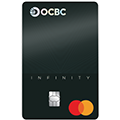Keeping up with Millennials and their financial habits
Keeping up with Millennials and their financial habits
Singaporeans do not just save more and owe less, they also invest more. The latest OCBC Financial Wellness Index 2021* shows that about 82% of Singaporeans have investments – a boost of 13% from last year.
But interestingly, it is the Millennials who made the biggest impact among investors.
Way to go, Millennials!
Approximately 86% of Millennials in their 20s have investments, up from 64% in 2020. This 22% bump stands out from the other age groups, where the growth ranged from a single digit for those aged 55-65 years to 16% for those in their 30s.
The rosy turn of events is indeed a welcome change from last year when Millennials – aged 21 to 39 years – were observed to be the most worried about money, with 49% of those surveyed in 2020 preoccupied by financial matters, compared with 37% of Generation X or 26% of Baby Boomers.
Millennials’ foray into investing could have started when the pandemic accelerated digital adoption among Singaporeans. The combination of commission-free trading apps and Millennials’ affinity for technology could have created an irresistible mix for them to test their financial savviness via the array of investment options available on these platforms.
The bullish market environment, following the stock market crash in February 2020, could have also served to spur Millennials on, feeding their FOMO (Fear of Missing Out).
Who moved my avocado?
To fast track their financial wealth, Millennials have moved away from traditional investments like Singapore stocks and unit trusts, in favour of higher volatility investments such as cryptocurrencies, foreign stocks and ETFs.
And they don’t shy away from speculating either when it comes to investing, a trait often frowned upon in traditional investments. Up 4% from last year, about 35% of Millennials do so compared to 31% in the next group that is made up of Singaporeans in their 30s.
Millennials have often been referred to as disruptors in more than one aspect. Born between 1980 and 2002, they have grown up in a time of rapid change, and this has given them a set of priorities and expectations sharply different from previous generations.
But the downside of investment habits that stray from prescribed patterns is that fewer Millennials are achieving their investment target.
The OCBC survey shows that more Millennials who are in their 20s and seek professional financial advice (and use digital financial tools) are on track to meet their investment target.
The Robinhood generation
While their stock picking style may be at odds with the traditional approach of fundamental, bottom-up analysis, Millennials do not appear to be carefree with their money.
External research shows that though Millennials may turn to investments like cryptocurrencies to earn a quick profit through buying and selling, many also plan to hold on to their favourite coins for the long haul as they genuinely have a positive outlook on the underlying blockchain technology.
They enjoy the camaraderie found in online communities, and take part in meme stock rallies, but at the end of the day, they want to invest in what they connect with, whether it is stocks, coins or digital assets.
The disconnect between Millennials and traditional investments may lie in this generation’s preference to rely on their own research, as opposed to using insights disseminated by institutions.
In the Millennial era, the paradigm has shifted towards “democratisation of finance”, a phrase used to describe a rethink of the financial system where previously inaccessible financial markets and investment options are now attainable by just about anyone. Trading 24/7 on always-on exchanges is far more intuitive to an internet-savvy generation than picking up the phone and calling a financial professional just to get in line for that IPO queue.
Ok, boomer
Despite all the haste to make more money, Millennials' aspirations are rather universal! According to the OCBC survey, their goal is to retire more comfortably, get richer, and spend on people they love more generously.
And the best way to achieve this is through the old-fashioned way of practising proper asset allocation to ensure they do not blur that fine line between investing and trading.
Asset allocation is a strategy for investing that is designed to reduce volatility by diversifying across a variety of investments such as stocks, bonds and alternative investments like commodities, real estate, rare gems and yes, blockchains and meme stocks. It will help underline what to sell, what to buy more of, and what to continue holding based on research, and not online euphoria.
The asset allocation that works best for an individual at any given point in their life will depend largely on their time horizon and their ability to tolerate risk.
According to a landmark study by Brinson, Singer & Beebower, asset allocation determined 91.5% of the portfolio performance, while market timing was 1.8% and security selection was 4.6%. What’s more, asset allocation is effective when asset classes are unlikely to generate parallel returns at the same time.
In the financial space today, there are sufficient products to appeal to investors of all generations. OCBC Digital platforms allow customers to invest at their own convenience after doing their own research, by providing jargon-free investment information and investment purchase journeys that are simple and easy to follow.
With our virtual wealth advisory service, customers are still able to get the same level of sales and wealth advisory in place of face-to-face meetings at our branches.
While Singaporeans have continued to build on their good financial habits, for it to prevail we need to ensure that Millennials adopt an investment philosophy that enriches their world, as they seek to enrich the world around them.
Top 4 investment ideas
Here's a list of investments that Millennials can relate to:
Unit Trusts
A unit trust allows access to different markets at only a fraction of the cost with the help of professional fund managers.
RoboInvest
For the discerning investor, RoboInvest has 36 thematic portfolios to choose from, from Electronic Vehicles and US Tech to Singapore REITs.
BlackRock ESG Multi-Asset Fund
The fund follows an asset allocation policy that seeks to maximise total return in a manner consistent with the principles of ESG focussed investing.
Retirement
OCBC Life Goals – a comprehensive retirement planning tool that simulates the amount required for a financial goal and offers a seamless product purchase journey and goal tracking.
*The survey conducted online over a month from mid-August this year, polled 2,051 working adults in 24 indicators under 10 categories, including saving and spending habits, managing of debts, investments, and retirement planning.
Important notices
General disclaimer
This advertisement has not been reviewed by the Monetary Authority of Singapore.
1. Any opinions or views of third parties expressed in this document are those of the third parties identified, and do not represent views of Oversea-Chinese Banking Corporation Limited (“OCBC Bank”, “us”, “we” or “our”).
2. This information is intended for general circulation and / or discussion purposes only. It does not consider the specific investment objectives, financial situation or needs of any particular person.
3. Before you make an investment, please seek advice from your Relationship Manager regarding the suitability of any investment product taking into account your specific investment objectives, financial situation or particular needs.
4. If you choose not to do so, you should consider if the investment product is suitable for you, and conduct your own assessments and due diligence on the investment product.
5. We are not making an offer, solicit to buy or sell or subscribe for any security or financial instrument, enter into any transaction or participate in any trading or investment strategy with you through this document. Nothing in this document shall be deemed as an offer or solicitation to buy or sell or subscribe for any security or financial instrument or to enter into any transaction or to participate in any particular trading or investment strategy.
6. No representation or warranty whatsoever in respect of any information provided herein is given by OCBC Bank and it should not be relied upon as such. OCBC Bank does not undertake an obligation to update the information or to correct any inaccuracy that may become apparent at a later time. All information presented is subject to change without notice.
7. OCBC Bank shall not be responsible or liable for any loss or damage whatsoever arising directly or indirectly howsoever in connection with or as a result of any person acting on any information provided herein.
8. Investments are subject to investment risks, including the possible loss of the principal amount invested. The information provided herein may contain projections or other forward-looking statements regarding future events or future performance of countries, assets, markets or companies. Actual events or results may differ materially. Past performance figures, predictions or projections are not necessarily indicative of future or likely performance.
9. Any reference to a company, financial product or asset class is used for illustrative purposes and does not represent our recommendation in any way.
10. The information in and contents of this document may not be reproduced or disseminated in whole or in part without the Bank’s written consent.
11. OCBC Bank, its related companies, and their respective directors and/or employees (collectively “Related Persons”) may, or might have in the future, interests in the investment products or the issuers mentioned herein. Such interests include effecting transactions in such investment products, and providing broking, investment banking and other financial services to such issuers. OCBC Bank and its Related Persons may also be related to, and receive fees from, providers of such investment products.
12. You must read the Offer Document/Indicative Term Sheet/Product Highlight Sheet before deciding whether or not to purchase the investment product, copies of which may be obtained from your relationship manager.
13. Any hyperlink to any third party article, or other website or webpage (including any websites or webpages owned, operated and maintained by third parties) is for informational purposes only and for your convenience only and is not an endorsement or verification of any such article, website or webpage by OCBC Bank and should only be accessed at your own risk. OCBC Bank does not review the contents of any such articles, website or webpage, and shall not be liable to any person for the same.
Collective Investment Schemes
1. A copy of the prospectus of each fund is available and may be obtained from the fund manager or any of its approved distributors. Potential investors should read the prospectus for details on the relevant fund before deciding whether to subscribe for, or purchase units in the fund.
2. The value of the units in the funds and the income accruing to the units, if any, may fall or rise. Please refer to the prospectus of the relevant fund for the name of the fund manager and the investment objectives of the fund.
3. Investment involves risks. Past performance figures do not reflect future performance.
4. Any reference to a company, financial product or asset class is used for illustrative purposes and does not represent our recommendation in any way.
For funds that are listed on an approved exchange, investors cannot redeem their units of those funds with the manager, or may only redeem units with the manager under certain specified conditions. The listing of the units of those funds on any approved exchange does not guarantee a liquid market for the units.









